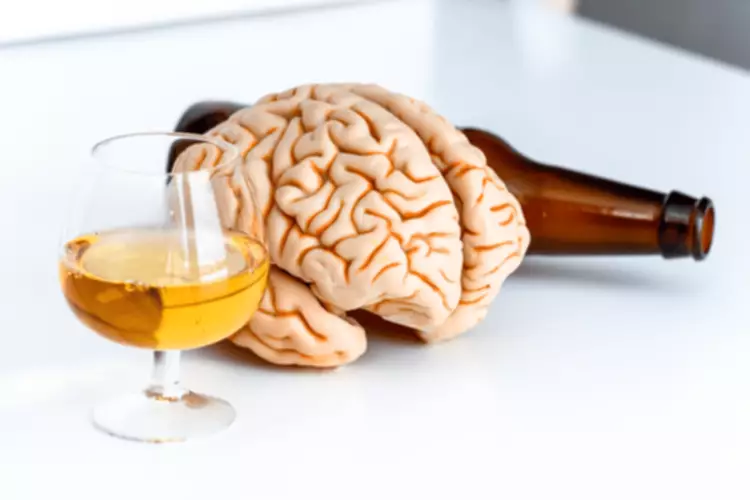Even those who were formerly healthy tend to let their good eating habits go as they become more consumed with the need to find and drink alcohol. This creates a two-fold nutritional problem because even if someone does manage to eat healthfully and get all their nutrients, alcohol prevents them from being fully absorbed. Still, the drugs are becoming more popular, changing eating habits for many Americans, and as a result, a new market is emerging — meals made specifically for people on weight-loss medications. If an individual is experiencing withdrawal symptoms, they are always welcome to go to the emergency room at St. Elizabeth Hospital and request help for withdrawal. The medical staff are trained to help and will provide the best care they can to service our community. There is no formal referral needed; therefore, a person can self-refer, a family member or friend can help their loved one make the first call, or a community resource member can be there while they make the call for additional support.
Nutrition During Alcohol Detox: What To Eat

People may crave unhealthy foods high in sugar while detoxing from alcohol. But eating sugary products in place of healthier foods during this time can result in vitamin deficiencies, creating additional stress on the body. Detox can be an uncomfortable process for individuals experiencing alcohol addiction. An understanding of how food affects mood and the risk of substance abuse begins with macronutrients. Carbohydrates are the body’s main source of energy; without this macronutrient, the brain can’t properly function, blood sugar becomes unstable, and neurotransmitters become disrupted.
- People who abuse alcohol or other drugs are 11 times more likely to have eating disorders than people who don’t have substance abuse issues.
- Despite this, dishes prepared with alcohol can still contain a measurable amount of the substance after cooking.
- Feeling nauseous, anxious, and generally experiencing a loss of appetite during the first few days of detoxing from alcohol is normal.
- Opiate and heroin use can be linked to nausea and vomiting, serious organ damage over time, and general neglect of one’s health, potentially leading to nutritional deficiencies.
- If you or a loved one is rebounding from substance dependence, please pay special attention to nutrition and proper nourishment.
- So why is it so hard to know whether alcohol is good or bad for us—especially for our brains?
Alcohol Use and Your Health
However, the efficacy and sufficiency of SUD treatment strategies are affected by a multitude of factors. Firstly, SUD entails the interaction of multiple factors encompassing physical, psychological, and social domains; thus, a comprehensive treatment approach must account for these multifaceted dimensions. Second, there is individual variability in SUD, requiring individualized treatment plans.
Rural jails turn to community health workers to help the newly released succeed
Eating too much can lead to obesity, diabetes, heart disease and other problems. However, increased appetite can be beneficial for people who enter recovery with low body weight. People who abuse alcohol or other drugs are 11 times more likely to have eating disorders than people who don’t have substance abuse issues. A person with substance use is more likely to relapse when they have poor eating habits.
Additionally, alcohol, tobacco, and cannabis use can contribute to oral cancer, gum disease, and tooth decay. Regular dental check-ups are crucial for drug users to address and prevent oral health issues. Regular dental check-ups and cleanings are crucial for maintaining oral health, especially if you’re using drugs. Your dentist can help identify any oral health problems early on and provide appropriate dental treatment and advice to keep your mouth healthy. Antacids, commonly used to relieve heartburn and indigestion, can affect oral health due to their high acidity.
- Still, the drugs are becoming more popular, changing eating habits for many Americans, and as a result, a new market is emerging — meals made specifically for people on weight-loss medications.
- In an acute sense, consumption of alcohol can lead to uninhibited behavior, sedation, lapses in judgment, and impairments in motor function.
- This causes many of the symptoms of a hangover immediately after alcohol ingestion, making drinking unpleasant.
A variety of whole, unprocessed foods with protein, healthy carbs, and monounsaturated and polyunsaturated fats – along with a low sugar and saturated fat intake – will keep the body and brain balanced for recovery. Eating disorders and substance use disorders share multiple similarities in displayed behavior. The escalation of substance abuse comes with increasingly severe cravings and the inability to control consumption despite building negative consequences. In the same manner, those who have bulimia and binge eating disorders experience extreme cravings for food and feel a loss of control when over-consuming. Both food and addictive substances present ways to escape from or numb unwanted feelings. Prospective studies show that early psychological issues can lead to both mood disorders and alcohol use disorder (AUD).
This will help support your recovery and ease your transition to a newly sober life. A well-balanced diet is important to build up your vitamin and nutrient stores and keep you healthy during the recovery process. A healthy, balanced diet includes plenty of fruits and vegetables, lean sources of protein like fish and poultry, whole grains, nuts, beans and low-fat dairy. Fish, nuts and vegetable oils can also support health by adding important fatty acids into the diet. Rather than shopping for each vitamin, it’s best to understand the components of a healthy diet.

If you are struggling with alcohol addiction, we are here for you. When cooking with alcohol, it doesn’t completely evaporate, despite what many people believe. The amount of alcohol remaining in food after cooking alcohol recovery diet can vary depending on how it’s cooked and for how long. According to the USDA’s Nutrient Data Lab, the percentage of alcohol that stays in food after cooking ranges from as little as 5% to as much as 49%.
This dietary intervention may help with detox and cravings. – Psychology Today
This dietary intervention may help with detox and cravings..
Posted: Sat, 10 Apr 2021 07:00:00 GMT [source]
New Vision is able to provide the medical detox service for those who will be withdrawing from alcohol, benzodiazepines, stimulates and opioids. It is advisable for those in recovery to consult with healthcare professionals regarding their diet. This includes discussing the consumption of food with alcohol content. Someone’s health history and stage of recovery can greatly influence dietary choices. The Recovery Village advocates for a comprehensive approach to recovery, where dietary guidance is integral to treatment and long-term well-being.

